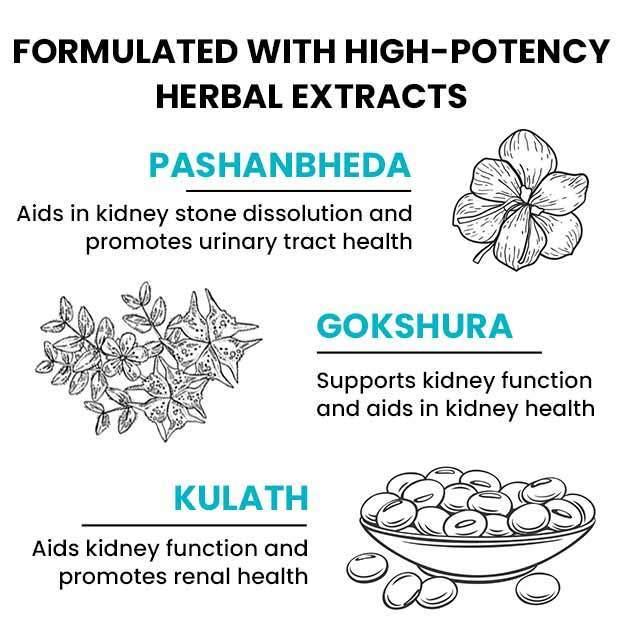Chronic kidney disease (CKD), also known as chronic renal disease, is a kidney disorder marked by a gradual loss of renal (kidney) function. The main function of kidneys is to filter blood and form urine, which is expelled from the body via the urinary system (urethra). Increasing damage to kidneys due to CKD leads to a build-up of excess waste and fluids in the body, leading to loss of electrolyte balance in body, which may manifest in the form of fatigue, loss of appetite and malaise.
CKD can even lead to further complications such as anaemia, heart disease, bone disease, decreased calcium levels, high phosphorus and potassium levels, along with a reduced quality of life. When kidneys stop functioning entirely, it is called kidney failure or end-stage renal disease (ESRD). Dialysis or kidney transplant are the treatment options that are considered in this stage.
In the initial stages, CKD does not show any prominent symptoms. Hence, blood and urine tests are the only way to determine if a person is suffering from CKD in this stage.
The major risk factors for CKD include high blood pressure, heart disease, obesity, and genetic predisposition to CKD. According to an estimate, diabetes and hypertension account for 40-60% cases of CKD in India. Other common causes of CKD include polycystic kidney disease, kidney infections, glomerulonephritis, poisoning with heavy metals such as lead, autoimmune disorders, obstruction in urine flow due to an enlarged prostate or kidney stones. Long-term use of certain medications such as non-steroidal anti-inflammatory drugs (NSAIDs) or lithium, and rare genetic diseases may also lead to CKD.
Around 12.5% of the Indian population depends on homeopathy for their treatment. Prescription in homeopathy is determined by the physical and mental state of a patient instead of focusing only on disease symptoms as in conventional medicine. Thus, the remedy for each disease is different for each patient. Some of the medicines used in homeopathy for CKD are apis mellifica, arsenicum album, belladonna, benzoicum acidum, and cantharis.
- Homeopathic medicines for chronic kidney disease
- Dietary and lifestyle changes for chronic kidney disease patient as per homeopathy
- How effective are homeopathic medicines and treatments for chronic kidney disease
- Side effects and risks of homeopathic medicine and treatments for chronic kidney disease
- Takeaway
Homeopathic medicines for chronic kidney disease
Few of the homeopathic remedies that are useful in treating CKD are mentioned below. A homeopathic physician chooses a specific remedy based on the symptoms shown by a patient, which are listed here under each remedy.
- Apis Mellifica
Common name: The honey-bee
Symptoms: This medicine is appropriate for individuals who do not have acute exacerbation of CKD. Individuals who benefit from apis mellifica show some of the following symptoms:- Swelling in different parts of body
- Stinging pain in head, back, and limbs
- Skin eruptions with a rosy hue
- Sensitivity to touch and heat intolerance
- Pain in kidneys (flank region)
- Kidney inflammation
- Lack of thirst
- Burning pain on urination
- Scanty and dark coloured urine
- Frequent micturition (urination)
- Suppression of urine
- Shortness of breath
- High level of albumin and blood corpuscles (cells) in urine
- Drowsiness
- Condition worsens in heat, with touch, and in the afternoon
- Arsenicum Album
Common name: Arsenious Acid- Arsenic Trioxide
Symptoms: Arsenicum album is given to individuals experiencing the following symptoms:- Insatiable thirst
- Dry, scaly, and itchy skin
- Swollen, pale, and sweaty face
- Scanty, involuntary urine, causing a burning sensation
- Dark and albuminous urine (protein in the urine)
- Presence of fibrin, pus, and blood in urine
- Abdominal weakness after urination
- Inflammation of kidneys
- Burning pain in back
- Extreme exhaustion even after slight exertion
- Extreme restlessness
- Shortness of breath or dyspnoea attacks
- Symptoms get worse after midnight and in wet, as well as, cold weather
- Belladonna
Common name: Deadly nightshade
Symptoms: This remedy is ideal for patients who suffer from inflammation along with stinging pain in kidneys. Patients who are prescribed Belladonna exhibit the following symptoms:- Fluctuating redness and paleness of skin
- Hot, swollen, and shiny face
- Extremely thirsty for cold water
- Burning and piercing pain extending from kidneys to bladder
- Scanty urine with tenesmus (sensation of incomplete defecation)
- Dark and turbid urine with presence of phosphates
- Incontinence (involuntary urination) with frequent and excessive urination
- Blood in urine
- Enlargement of prostate
- Swollen glands in neck
- Condition worsens with touch, noise or after lying down
- Benzoicum Acidum
Common name: Benzoic acid
Symptoms: This remedy is appropriate for patients showing gout symptoms accompanied by CKD. Colour of the urine is the most important characteristic symptom for this remedy. It is well- suited for individuals with the following symptoms:- Blisters on face
- Pungent odour and brown coloured acidic urine
- Involuntary urination
- Increased uric acid levels
- Inflammation of bladder
- Pain in kidneys
- Cantharis Vesicatoria
Common name: Spanish fly
Symptoms: This remedy is useful for patients exhibiting a frequent desire to urinate with pain in both kidneys. Intolerable and painful urge to urinate is one of the main symptoms this medicine is prescribed for. Other symptoms that can be relived by cantharis vesicatoria include:- Burning and itching of skin
- Inflammation of kidneys
- Bloody urine that passes in drops
- Intense outburst of cutting and burning pain in the entire renal (kidney) region, as well as, before, during, and after urination
- Uncontrollable tenesmus
- Jelly-like urine
- Condition worsens from touch, during urination or by drinking cold water/coffee
- Convallaria Majalis
Common name: Lily of the valley
Symptoms: Convallaria majalis is used as a remedy for CKD occurring due to heart disorders. It is suitable for individuals who exhibit the following symptoms:- Pain in bladder
- Bladder feels distended
- Frequent urination with offensive odour and reduced urine output
- Dropsy and shortness of breath
- Mercurius Corrosivus
Common name: Corrosive sublimate
Symptoms: Mercurius corrosivus is considered the best remedy for individuals exhibiting albuminuria along with nephritis during pregnancy. It is indicated in the treatment of CKD with the following symptoms:- Intermittent pain in face
- Intense urethral burning
- Scanty, hot, albuminous, and bloody urine with green discharge
- Bladder tenesmus
- Sweating after urination
- Excessive pain in urethra that extends to the bladder
- Condition worsens at night
- Terebinthiniae Oleum
Common name: Turpentine
Symptoms: Turpentine has increased affinity towards bleeding mucous membranes and suits individuals who suffer from abdominal distension along with kidney problems. Individuals who respond to this remedy display symptoms such as:- Drowsiness and swelling all over the body
- Bladder irritation, causing severe pain and intense urge to urinate (strangury)
- Blood in urine
- Less urine content with an odour of violets
- Continuous tenesmus
- Urethritis
- Inflamed kidneys
- Burning back pain in the kidney region
Dietary and lifestyle changes for chronic kidney disease patient as per homeopathy
Do’s
- Maintain an active lifestyle by doing exercises in fresh air in every weather such as by walking daily or by doing moderately strenuous work.
- Get enough sleep.
- Consume nutritious, unmedicinal foods and drinks.
- Maintain personal and environmental hygiene
Don’ts
- Avoid beverages such as coffee, herbal teas, beer, and other spiced liquors.
- Avoid extremely spicy foods, spiced chocolate, foods prepared from plants having medicinal qualities, ice creams, celery, and onion.
- Cheese and meats that are stale or with medicinal properties must be avoided.
- Excessively sweet or salty foods must not be consumed.
- Avoid sleeping during the daytime.
- Avoid using strong-scented items like perfumes and talcum powders
- Do not take stress.
- Avoid a sedentary lifestyle.
How effective are homeopathic medicines and treatments for chronic kidney disease
Homeopathic treatment during the early stages of CKD can stop the disease from advancing and may even permanently cure it. A specific homeopathic remedy is chosen on the basis of symptoms, medical history, and health of the patient. Homeopathy can treat CKD by stimulating the immune system, which helps the body to repair the damaged kidneys or other organs itself.
Homeopathic treatments are even beneficial in decreasing the complications and frequency of dialysis in ESRD patients. In addition to this, homeopathic medicines can assist kidney transplantation process by lowering the rate of donor rejection. A research study showed that homeopathic treatment not only helps to prolong the life of kidney patients but also enhances their quality of life.
Side effects and risks of homeopathic medicine and treatments for chronic kidney disease
Homeopathic medicines are safe to use and do not have any side effects since they are highly diluted and not addictive. However, self-medication or consumption of higher doses of these remedies may have some side effects.
Homeopathic doctors consider individual miasms along with disease symptoms to prescribe an individualised remedy for effective and complete treatment. Dosage of a remedy depends on the manifested symptoms.
Hence, it is necessary that these medicines must be taken on the advice of a certified homeopathic practitioner.
Takeaway
CKD is marked by a reduction in kidney function that worsens slowly over time. This results in waste build-up and health complications such as anaemia and heart diseases. Patients with CKD are also at an increased risk of renal failure. Homeopathic medicines used for the treatment of CKD have been established to be effective, as well as, without any side effects. It is especially helpful for individuals who are on a lookout for alternative medicines along with the conventional treatment.
Find Homeopathic Doctor in cities
Doctors for Homeopathic medicine, treatment and remedies for Chronic Kidney Disease

Dr. Rutvik Nakrani
Homeopathy
6 Years of Experience

Dr. Jyothi
Homeopathy
23 Years of Experience

Dr. Urvashi Chaudhary
Homeopathy
8 Years of Experience

Dr. Anita Kumari
Homeopathy
12 Years of Experience
References
- Center for Disease Control and Prevention [internet], Atlanta (GA): US Department of Health and Human Services; Chronic Kidney Disease Basics.
- American Kidney Fund. [Internet]. Rockville, Mayland. Chronic kidney disease (CKD).
- MedlinePlus Medical Encyclopedia: US National Library of Medicine; Chronic Kidney Disease.
- National Institute of Diabetes and Digestive and Kidney Diseases [internet]: US Department of Health and Human Services; Chronic Kidney Disease (CKD).
- Levey AS, Coresh J, Balk E, Kausz AT, Levin A, Steffes MW, et al. National Kidney Foundation practice guidelines for chronic kidney disease: evaluation, classification, and stratification.. Ann Intern Med. 2003;139:137–47.
- Sequira L, Prabhu R, Mayya SS, Prasad S, Elsa N, Devi S, et al. Status of chronic kidney disease (CKD) in india – a narrative review.. Int Educ Res J. 2016;2(March):121–4
- Sumithran PP. A case of multiple urinary calculi. Indian J Res Homoeopath. 2016;10(2):142.
- Pareek A. Homoeopathic management of chronic renal failure across its different stages: Case studies. Allg Homöopathische Zeitung. 2017;262(2):DF03-02.
- William Beoricke. Homeopathic Materia Medica. Homeopathic Materia Medica. Médi-T,2000.
- British Homeopathic Association. [Internet]. United Kingdom. Is homeopathy safe?.

















